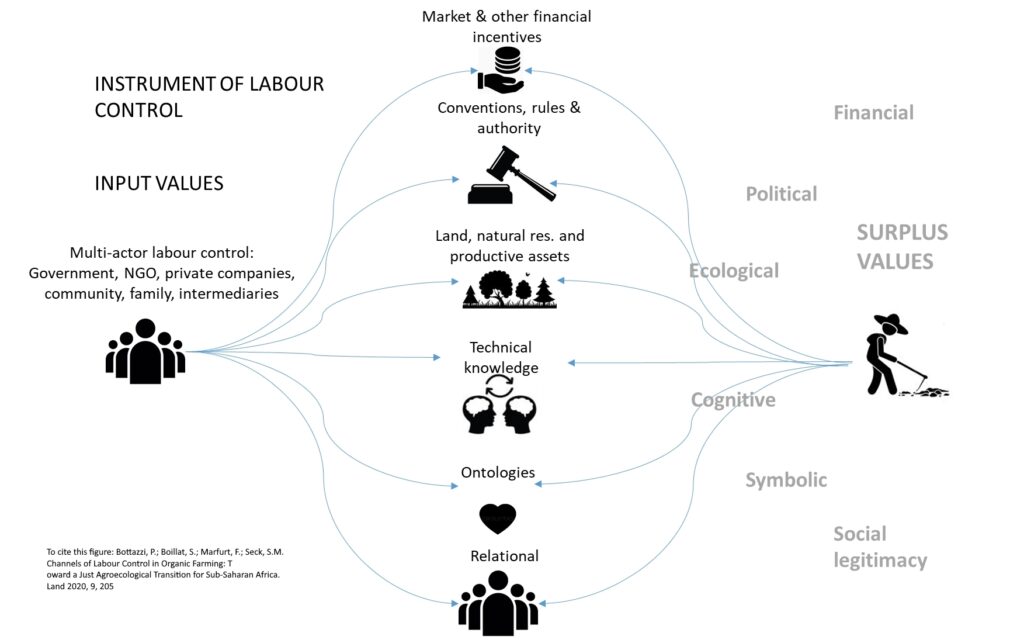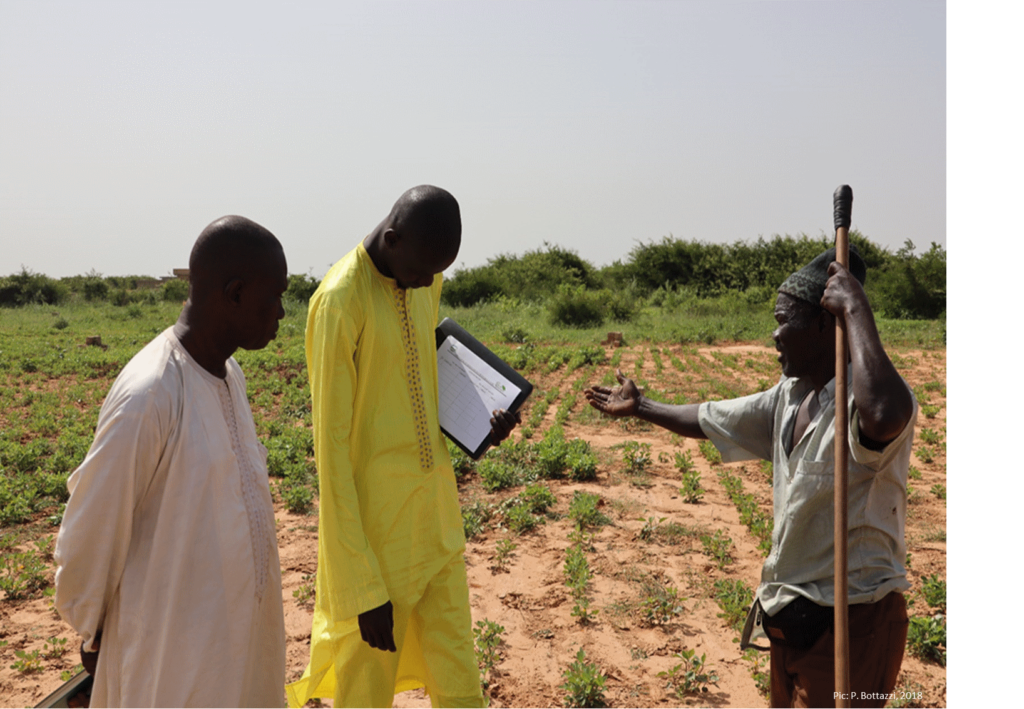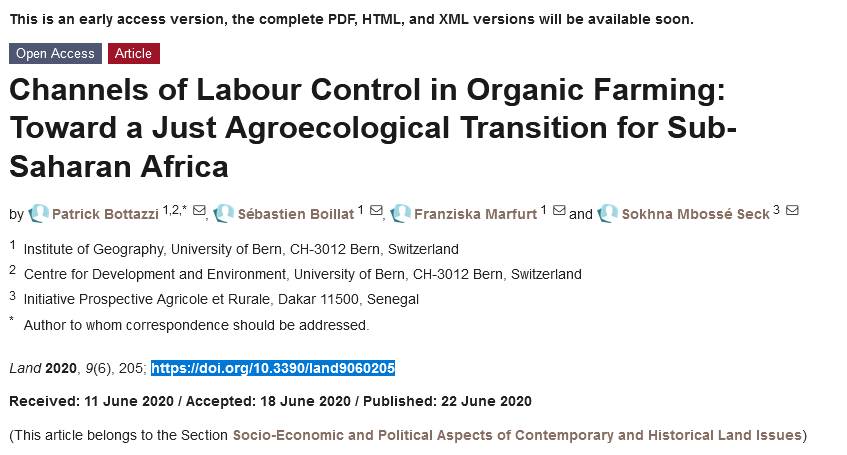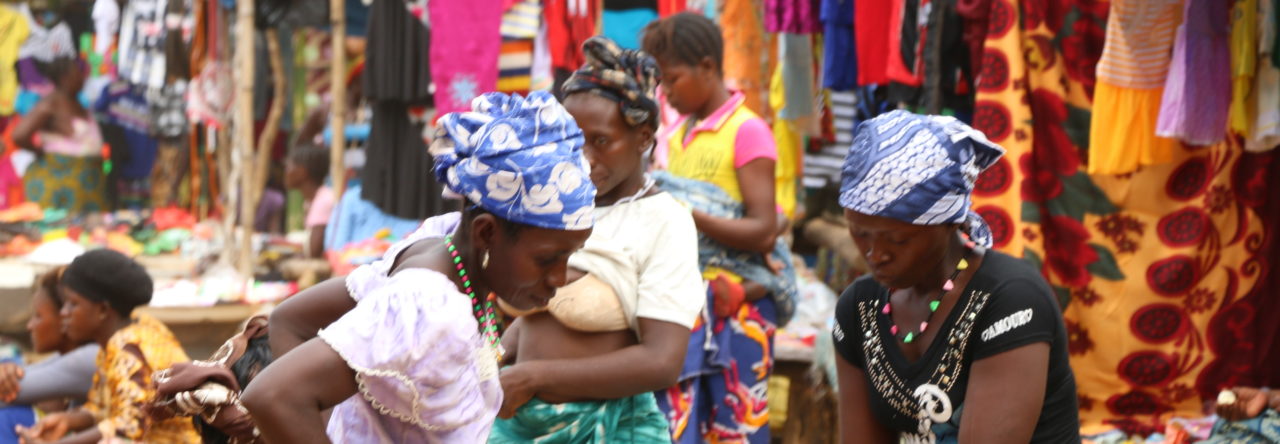

Agroecological farming has long been described as more fulfilling than conventional agriculture, in terms of farmers’ labour and sense of autonomy. These assumptions must be reconsidered with adequate theoretical perspectives and with the empirical experience of recent
studies. This paper introduces the concept of channels of labour control in agriculture based on four initiatives in Senegalese agroecological horticulture. We build on Bourdieu’s theory of social fields to elaborate a framework that articulates multiple channels of labour control with the type of capital or surplus values structuring power relations during labour processes. Although each of the four agroecological initiatives place a clear emphasis on improving farmers’ well-being, various top-down channels of labour control exist, maintaining most farmworkers as technical demonstrators rather than agents of transformation. These constraints stem from dependence on foreign funding, enforcement of uncoordinated organic standards, and farmers’ incorporation of cultural values through interplays of knowledge and symbolic power with initiative promotors. Pressure on agricultural workers is exacerbated by the context of the neo-liberalisation of Senegalese agriculture and increasingly difficult climatic conditions. A more holistic approach of agroecological initiatives is needed, including the institutionalisation of protected markets for their products, farmers’ inclusion in agroecosystem governance and inclusiveness in the co-production of agroecological knowledge, taking cultural patterns of local communities into account. Recent attempts to scale-up and politicise agroecology through farmers’ organisations, advocacy NGOs, and municipalities may offer new perspectives for a just agroecological transition in sub-Saharan Africa.

Click here to access full text
![]()



